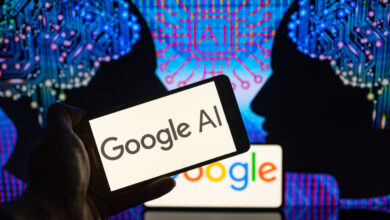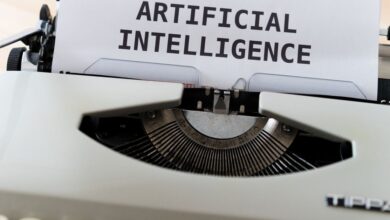How Blockchain and Machine Learning Are Reshaping Industries | by Akim | May, 2024

The Future of Technology
The world is undergoing a technological revolution driven by two groundbreaking innovations: blockchain and machine learning. These cutting-edge technologies are disrupting industries and reshaping business models.
Blockchain, a decentralized digital ledger, promises secure, transparent transactions by eliminating intermediaries and enhancing trust.
Meanwhile, machine learning empowers computers to learn from data, identify patterns, and make accurate predictions, unlocking new realms of efficiency and automation.
As blockchain and machine learning continue to evolve, they are poised to profoundly transform various sectors, from finance and healthcare to supply chains and beyond.
This article explores the transformative potential and real-world applications of these revolutionary technologies across industries.
Blockchain is a decentralized digital ledger that records transactions across multiple computers. It ensures transparency, immutability, and security by using cryptographic algorithms.
Each transaction, or block, is linked to the previous block, creating a chain of information that cannot be altered without consensus from the network.
This makes blockchain highly resistant to fraud and tampering, making it an ideal solution for industries that deal with sensitive data, such as finance and healthcare.
Machine learning, on the other hand, is a subset of artificial intelligence that enables computers to learn and make predictions without being explicitly programmed.
It relies on algorithms and statistical models to analyze vast amounts of data and identify patterns.
Machine learning algorithms can continuously learn from new data, improving their performance over time.
This technology has the potential to automate processes, optimize decision-making, and uncover valuable insights from complex datasets.
Blockchain is revolutionizing industries by increasing transparency, improving security, and streamlining processes.
One industry that has been greatly impacted by blockchain is supply chain management. With blockchain, companies can track the movement of goods from the source to the end consumer in real-time.
This ensures transparency, reduces fraud, and enhances trust between parties. Additionally, blockchain can provide an immutable record of product origins, certifications, and quality, making it easier to identify and address issues related to counterfeit goods or unsafe products.
Another industry that has embraced blockchain is finance. Blockchain technology enables secure and efficient peer-to-peer transactions, eliminating the need for intermediaries such as banks.
This can significantly reduce transaction costs and processing times. Moreover, blockchain can facilitate cross-border transactions by eliminating the need for multiple currency conversions and reducing the risk of fraud.
It also has the potential to democratize access to financial services, especially in underserved regions where traditional banking is limited.
Machine learning is transforming industries by automating processes, optimizing decision-making, and uncovering valuable insights.
In the healthcare industry, machine learning algorithms are being used to analyze medical records, identify patterns, and make accurate diagnoses.
This can lead to earlier detection of diseases, personalized treatment plans, and improved patient outcomes. Machine learning can also help predict epidemics, optimize hospital resource allocation, and improve the efficiency of clinical trials.
In the finance industry, machine learning is revolutionizing fraud detection. Traditional rule-based systems are often insufficient to detect complex fraudulent patterns.
Machine learning algorithms can analyze vast amounts of data in real-time, identify anomalies, and detect fraudulent activities with high accuracy. This can save financial institutions billions of dollars and protect consumers from identity theft and financial fraud.
Machine learning is revolutionizing the healthcare industry by enabling personalized medicine, improving diagnostics, and enhancing patient care. By analyzing large datasets, machine learning algorithms can identify patterns and predict disease outcomes.
This can help physicians make more accurate diagnoses and develop personalized treatment plans based on a patient’s unique characteristics. Machine learning can also assist in drug discovery by analyzing molecular structures and predicting the efficacy of potential drugs.
Furthermore, machine learning can improve patient care by analyzing electronic health records and identifying potential risks or complications.
This can help healthcare providers intervene early and prevent adverse events. Machine learning algorithms can also analyze medical images, such as X-rays or MRIs, and detect abnormalities or signs of disease that may be missed by human radiologists.
This can lead to earlier detection of diseases, more accurate diagnoses, and improved patient outcomes.
Machine learning is revolutionizing the finance industry by automating processes, improving risk management, and enhancing customer experience. One area where machine learning has had a significant impact is fraud detection.
Traditional rule-based systems are often insufficient to detect complex fraudulent patterns.
Machine learning algorithms can analyze vast amounts of data in real-time, identify anomalies, and detect fraudulent activities with high accuracy. This can save financial institutions billions of dollars and protect consumers from identity theft and financial fraud.
Machine learning is also transforming credit scoring. Traditional credit scoring models rely on limited data points and may not accurately assess a borrower’s creditworthiness.
Machine learning algorithms can analyze a wide range of data, including social media activity, online behavior, and transaction history, to provide more accurate credit scores.
This can help financial institutions make better lending decisions and expand access to credit for underserved populations.
Blockchain and machine learning are revolutionizing supply chain management by enhancing transparency, improving efficiency, and reducing costs. With blockchain, companies can track the movement of goods from the source to the end consumer in real time.
This ensures transparency, reduces fraud and enhances trust between parties. Additionally, blockchain can provide an immutable record of product origins, certifications, and quality, making it easier to identify and address issues related to counterfeit goods or unsafe products.
Machine learning, on the other hand, can optimize supply chain processes by analyzing vast amounts of data and identifying patterns. It can predict demand, optimize inventory management, and improve logistics planning.
Machine learning algorithms can also help identify potential bottlenecks or inefficiencies in the supply chain and suggest ways to improve them.
This can lead to cost savings, faster delivery times, and improved customer satisfaction.
The future of blockchain and machine learning is promising, with numerous industries expected to benefit from these technologies. In the healthcare industry, blockchain has the potential to improve patient data security and interoperability.
It can enable patients to have full control over their medical records and decide who can access them. Machine learning, on the other hand, can assist in drug discovery, personalized medicine, and predicting disease outbreaks.
In the finance industry, blockchain can revolutionize cross-border payments, reduce transaction costs, and enhance financial inclusion.
Machine learning can improve risk management, fraud detection, and customer experience. It can also facilitate the development of robo-advisory services, personalized financial recommendations, and automated trading systems.
In supply chain management, blockchain and machine learning can enhance transparency, traceability, and efficiency.
They can reduce fraud, improve inventory management, and optimize logistics planning. Moreover, blockchain can enable the development of decentralized marketplaces and peer-to-peer transactions.
Blockchain and machine learning are reshaping industries by increasing transparency, improving efficiency, and enhancing security.
These technologies have the potential to revolutionize various sectors, from healthcare to finance and supply chain management.
As we embrace the future, it is crucial for businesses and organizations to understand the potential of blockchain and machine learning and leverage their benefits.
By embracing these technologies, we can create a more secure, efficient, and interconnected world.
Thank you for reading!!



